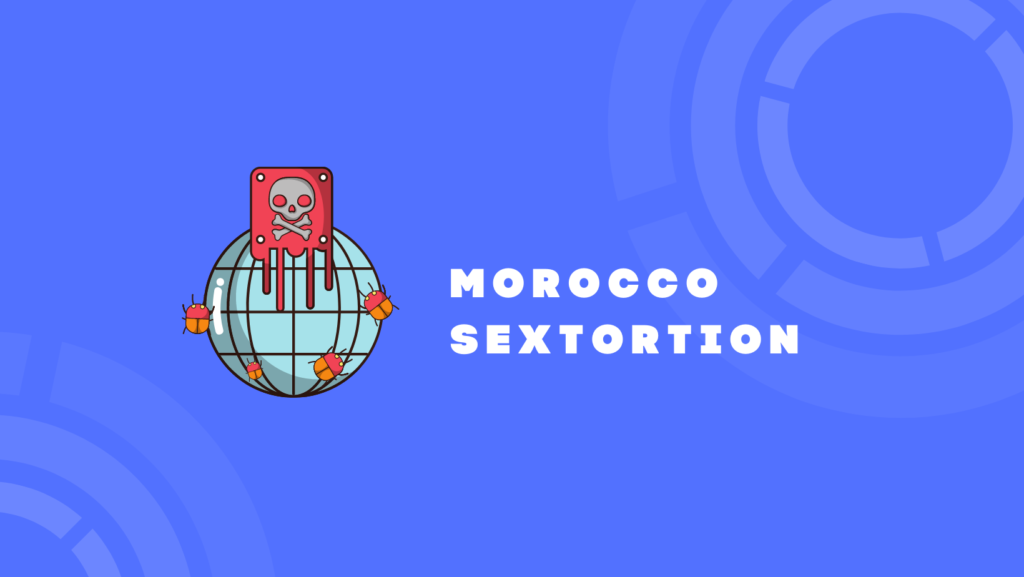
Morocco Sextortion
Morocco Sextortion
Morocco Sextortion, like many other countries, has witnessed a rise in sextortion cases—a form of cyber exploitation that involves the coercion of individuals into providing explicit material under the threat of blackmail or exposure. This comprehensive guide sheds light on the phenomenon of sextortion in Morocco, explores its underlying causes, and provides strategies for prevention. By understanding the issue and taking proactive measures, individuals and communities can work together to combat sextortion and protect the digital safety and well-being of Moroccan citizens.
Understanding Morocco Sextortion
- Defining Sextortion: Sextortion refers to the act of coercing individuals into sharing explicit material through threats or blackmail, often facilitated by digital platforms or social media.
- Prevalence in Morocco: Sextortion cases in Morocco have seen a concerning increase, impacting individuals from various backgrounds and age groups.
- Impact on Victims: Sextortion can cause severe emotional distress, damage personal relationships, and have long-lasting consequences on the mental well-being and social lives of victims.
Factors Contributing to Morocco’s Sextortion Problem:
- Online Exploitation Techniques: Perpetrators employ various tactics, such as catfishing, social engineering, or hacking, to manipulate and exploit individuals online.
- Lack of Digital Literacy: Limited digital literacy and awareness of online risks can make individuals more vulnerable to sextortion Morocco.
- Socioeconomic Factors: Socioeconomic disparities and economic instability may push individuals into risky online activities, increasing their susceptibility to sextortion.

Strategies for Prevention
Strategies for Prevention
- Digital Literacy Programs: Implement comprehensive digital literacy programs that educate individuals about online risks, privacy protection, and safe online behavior, particularly targeting vulnerable populations.
- Awareness Campaigns: Launch public awareness campaigns to educate the general public about sextortion, its consequences, and prevention strategies. This can be done through traditional media, social media platforms, and community outreach programs.
- Collaboration with Law Enforcement: Foster collaboration between law enforcement agencies, cybersecurity experts, and social media platforms to identify and apprehend sextortion perpetrators, as well as implement preventive measures.
- Victim Support Services: Establish specialized support services that provide counseling, legal advice, and psychological support for victims of sextortion. These services should prioritize confidentiality, empathy, and culturally sensitive approaches.
- International Cooperation: Strengthen international cooperation and information sharing among countries to combat cross-border sextortion cases and hold perpetrators accountable.
Legal Framework and Law Enforcement:
- Legal Reforms: Ensure that the legal framework in Morocco is robust and up-to-date, addressing the unique challenges posed by sextortion. This includes strict penalties for perpetrators and protective measures for victims.
- Cybercrime Units: Enhance the capabilities of specialized cybercrime units within law enforcement agencies to effectively investigate and prosecute sextortion cases.
- Reporting Mechanisms: Establish user-friendly and accessible reporting mechanisms for sextortion incidents, encouraging victims to come forward without fear of judgment or retribution.
Support and Empowerment of Victims:
- Confidential Helplines: Establish dedicated helplines or hotlines for sextortion victims, offering immediate support, guidance, and referrals to relevant resources.
- Psychosocial Support: Provide accessible and culturally appropriate psychosocial support services, including counseling and therapy, to help victims cope with the emotional trauma caused by sextortion.
- Victim Advocacy: Strengthen victim advocacy programs that empower victims to assert their rights, navigate the legal process, and raise awareness about sextortion to combat stigma and promote societal change.
Conclusion:
Sextortion poses a significant threat to individuals in Morocco, necessitating a multi-faceted approach to prevention, intervention, and support. By enhancing digital literacy, raising awareness, fostering collaboration between stakeholders, and implementing comprehensive legal measures, Morocco can combat sextortion and protect its citizens from cyber exploitation. It is essential to prioritize victim support services, empower individuals with knowledge and resources, and create a culture of reporting and accountability. Together, we can work towards a safer digital environment in Morocco, ensuring the well-being and security of all its inhabitants.
we understand that recovering from sextortion is a challenging process that often requires professional guidance. That’s why our guide also includes a comprehensive section on ‘How to Recover from Sextortion.‘
Are you or someone you know facing sextortion in Morocco? It’s essential to remember that you’re not alone, and help is available.



